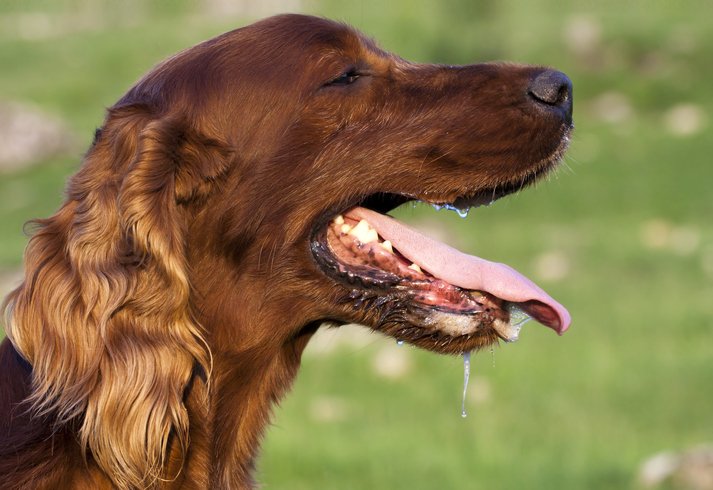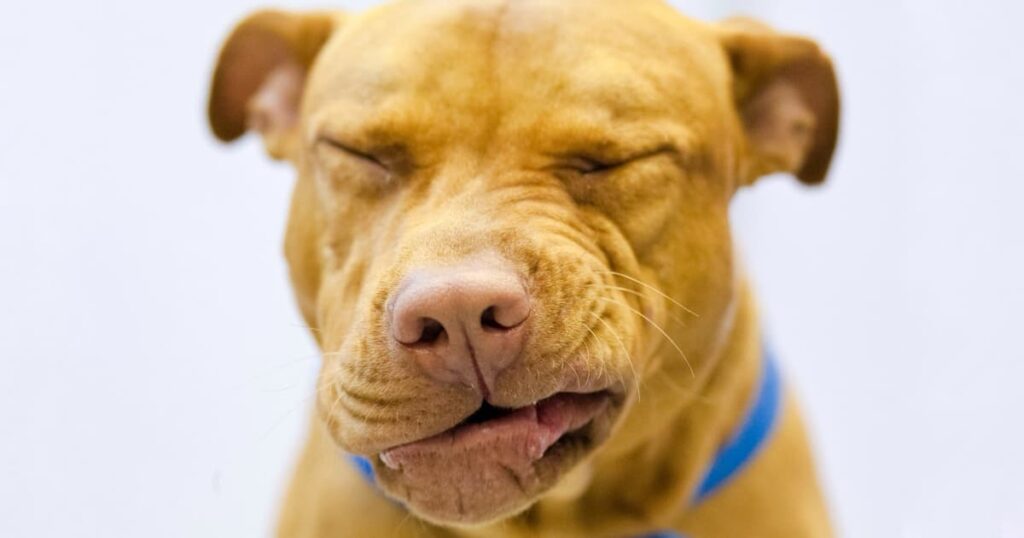Smelling bad dog breath is just part of being a dog owner, right? Wrong! Though dogs may develop stinky breath from tartar/plaque buildup or eating garbage (or, sometimes, underlying health conditions), your dog’s breath doesn’t have to send you running away from your pet. There are steps you – or your vet – can take to freshen up your dog’s breath.
At-home Tips for Bad Dog Breath
You have an oral hygiene routine to keep your teeth and mouth clean. So why not take a few steps to help keep your dog’s teeth and mouth fresh, too?
- Brush your dog’s teeth. It might sound intimidating, but brushing your dog’s teeth will keep their breath fresher. It also reduces plaque and tartar buildup, which can help prevent tooth decay and gum disease. Most pet stores stock special finger brushes that slip over your finger to brush your dog’s teeth. Canine toothpastes in appetizing flavors assist make the experience a little more enjoyable for your dog. Never brush your dog’s teeth with toothpaste developed for people.
- Give your pup something to chew on. Chewing is your dog’s natural way of cleaning their teeth, and it improves their breath in the process. Specially made dog tooth-cleaning treats like DENTASTIX™ dental chews help reduce plaque and tartar buildup and come in a variety of flavors sure to please your pup. Your veterinarian can also offer advice on ways to keep your dog’s oral and overall health.
- Keep an eye on what your dog eats and drinks. Sometimes a dog’s breath stinks simply because they’ve eaten something stinky. Make sure your dog isn’t indulging in unsavory snacks, such as roadkill, garbage or even feces from a cat, canine or bird. Keep an eye on your dog during walks or time outside and consider moving the

Vet Treatments for Bad Dog Breath
If the bad breath persists, visit your vet.
- Consider annual cleanings by your vet. Bad breath is more common in older dogs because tartar builds up over the years – unless your dog’s teeth are cleaned regularly. Your vet will clean and polis usually your dog’s the teeth and check for any issues, such as cavities or tooth damage. Your veterinarian may recommend cleaning under anesthetic to remove heavy tartar; this could be more expensive (and sometimes riskier for older animals), but it may be worth it to avoid a serious and possibly life-threatening illness later.
- Rule out other causes of bad breath. If your dog’s bad breath is a recent change or you have concerns about your pet’s breath in general, your vet can assess the condition of your dog’s teeth to confirm the cause of the smell. It’s important to rule out other health problems, such as periodontal disease or a kidney or liver disorder. You can also consult your veterinarian about appropriate chew toys.

